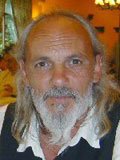Swift wins Award
 Swift team awarded top high energy astronomy prize
Swift team awarded top high energy astronomy prize This year's prestigious Bruno Rossi Prize has been awarded to National Aeronautics and Space Administration (NASA) scientist Neil Gehrels and the team working on NASA's Swift Gamma-Ray Burst Explorer mission, including UK scientists from the University of Leicester and University College London's Mullard Space Science Laboratory, for major advances in the scientific understanding of gamma-ray bursts.
The prize is given each year by the High Energy Astrophysics Division (HEAD) of the American Astronomical Society (AAS), the largest professional organization of astronomers in the United States.
Besides observing GRBs, Swift has several secondary scientific goals, including observing supernovae (powerful stellar explosions which can be used to map out the shape and fate of the Universe) and making the first high-energy survey of the entire sky since the 1980s.
The HEAD-AAS awards the Rossi Prize in recognition of significant contributions as well as recent and original work in high-energy astrophysics.
Past awards have been given for work, both theoretical and observational, in the fields of neutrinos, cosmic rays, gamma rays and X-rays. The prize is in honor of Professor Bruno Rossi, an authority on cosmic-ray physics and a pioneer in the field of X-ray astronomy.
For more information on Swift, visit:
Swift site
NASA site
The main mission objectives of Swift are to:
(1) determine the origin of gamma-ray bursts; (2) classify gamma-ray bursts and search for new types; (3) determine how the blast-wave evolves and interacts with the surroundings; (3) use gamma-ray bursts to study the early Universe; (4) perform the first sensitive hard X-ray survey of the sky.
 Nano-detector Looks Promising For Remote Cosmic Realms
Nano-detector Looks Promising For Remote Cosmic RealmsA miniscule but super-sensitive sensor can help solve the mysteries of outer space. Cosmic radiation, which contains the terahertz frequencies that the sensors detect, offers astronomers important new information about the birth of star systems and planets.
The detector, called a 'hot electron bolometer', is based on the well-known phenomenon that electrical resistance increases when something is heated up. The use of a superconductor renders the detector extremely sensitive and allows it to be used for radiation that until now could not be so well detected.
The detector works for terahertz frequencies, which astronomers and atmospheric scientists are extremely interested in. The detector's core is comprised of a small piece of superconducting niobiumnitride. Clean superconducting contacts that are kept at a constant temperature of --268 °C (five degrees above absolute zero) are attached to both ends of the superconducting niobiumnitride.
A miniscule gold antenna catches the terahertz-radiation and sends it via the contacts to the small piece of niobiumnitride, which functions as an extremely sensitive thermometer. "By reading this thermometer, we can very accurately measure the terahertz radiation. In Delft, we have set a world record with this detector in the frequency area above 1.5 terahertz," Hajenius says proudly.
The results have convinced astronomers to use these detectors for the new observatory in Antarctica (HEAT), and a new space mission (ESPRIT) has also been proposed.
The 'maiden flight' of Hajenius' detector is planned for next year, but it will not take place in a satellite used for studying cosmic clouds, but rather in a balloon that will study the earth's atmosphere. The TELIS instrument, which SRON is currently working on, will be equipped with a Delft University of Technology detector and will measure the molecules in the atmosphere above Brazil that influence the formation of the hole in the ozone layer.
Image courtesy of Delft University of Technology
_______________________________________________________
No Extra Dimensions, Yet by Plato
Collider at Fermilab & Cosmic Ray detector at SLAC by Plato
Jovian magnetosphere & Solar Wind interactions by Centauri Dreams
_______________________________________________________
_______________________________________________________
Famous Quotes: A wise man
will make more opportunities than he finds.Francis Bacon
_______________________________________________________
_______________________________________________________
Labels: Nano detectors, NASA, Swift


<< Home